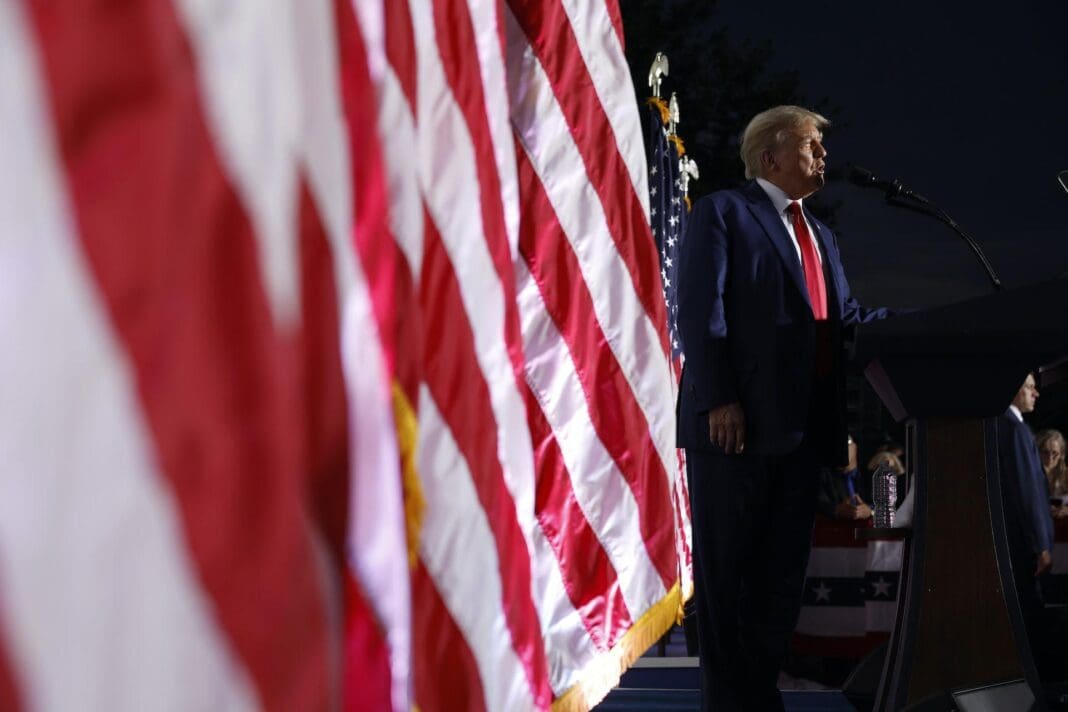Former President Donald Trump’s trial for allegedly mishandling classified documents will begin on May 20, 2024.
At least that’s what Federal District Judge Aileen Cannon announced in mid-July 2023.
Trump’s legal team unsuccessfully pushed Cannon to delay his trial until after the election.
Federal prosecutors, meanwhile, wanted the trial to begin as early as December 2023.
Cannon split the difference. The date she set falls later than prosecutors wanted, and earlier than Trump wanted.
Trump is now also facing additional federal charges for his attempts to overturn the 2020 presidential election. He is expected to be arraigned on Aug. 3, 2023, but it is not yet clear when his trial will begin.
Still, this May 2024 start date for his classified documents case should be entered on calendars only with a light pencil. As a legal ethics scholar and expert on criminal trials, I have often observed that delaying a trial is a defense strategy, especially when the defense believes that the delay may weaken the prosecution’s case.
In criminal cases in which the defendant is not in jail awaiting trial, there is a common belief that delay is good for defendants. Witnesses’ memories will not be fresh, and some witnesses may even disappear. The conventional wisdom among defense lawyers is that delays lead to acquittals.
Trump’s defense team could try to delay the trial by filing various pretrial motions – meaning questions or requests to the court.
These legal requests could focus on what kind of evidence to admit or exclude at trial, or which witnesses should testify. For example, the defense team is likely to request that the Trump lawyers involved in the Mar-a-Lago search be excluded, claiming their communications with Trump are protected by attorney-client privilege. Whether the judge agrees to these requests or not doesn’t matter – at least, not at first. Once such a request is made, the other side usually has 21 days to reply, and often the judge will set a hearing on the request, which could cause a delay.
If there is a hearing on the request, the judge then may take days, and sometimes weeks, to issue a ruling on the request.
In Trump’s case, delaying the trial until after the election could mean that if Trump wins the presidency, he could have the Justice Department drop the case or he could try to pardon himself.
As Sean Walsh, who served in the White House press office in the Reagan and George H.W. Bush administrations, explained, if Trump is elected president, that will be “his get out of jail free card” if he is convicted in federal cases. But that would not apply to state prosecutions or convictions, which the president cannot control.
If voters pick another Republican as the presidential nominee and that person wins the general election, Trump could also ask that president to pardon him.
Indeed, one Republican candidate, Vivek Ramaswamy, is urging all of the GOP 2024 White House contenders to commit to pardoning Trump.
Before the May 2024 trial date, Trump’s defense lawyers could argue that they need more time to adequately prepare for trial. They could use this justification to push the start date back.
They could argue that, without more time, Trump will not get a fair trial because they will not be able to represent him effectively.
Cannon set May 14, 2024, as the last hearing before the trial, so Trump’s lawyers could conceivably wait until then to request a delay.
That motion alone would potentially delay the trial for weeks, if not months, if Cannon granted it. If Cannon denied the motion, an appeal to a higher court would also take weeks or months.
Additionally, the defense might find out new information during the discovery phase, which involves the government’s turning over evidence and a list of witnesses. That would lead Trump’s legal team to try to exclude the new evidence or prosecution witnesses from the trial.
For example, the Justice Department has relied on evidence in some communications between Trump and one of his lawyers, E. Evan Corcoran, in its investigation. Trump’s lawyers are almost certain to ask that Cannon keep that evidence out of the trial by asking a different trial judge in Florida to rule that way. If Cannon allowed this request, the government would be almost certain to appeal.
That, too, would take time to work out in the court system as the judge considered the request.
At this point, before there has been an exchange of discovery and witness lists, it is too early for Trump’s defense to appeal the May 2024 trial date. It is also too early from a strategic point of view.
Waiting until later in the pretrial process gives Trump additional opportunities to ask Cannon for more delays based on what his team learns through the discovery process. Even if Cannon does not grant an additional Trump request for delay, the defense could always appeal any such denial.
For these and potentially other possible reasons to delay the trial, Cannon’s setting the trial for May 20, 2024, is more tentative than it may seem. Trump’s defense lawyers will have other chances to seek additional delays. And Cannon is the primary – if not the only – person who will decide those requests.
Until her decision is appealed.
This article is republished from The Conversation, an independent nonprofit news site dedicated to sharing ideas from academic experts. The Conversation is trustworthy news from experts, from an independent nonprofit. Try our free newsletters.
Read more: When presidential campaigns end, what happens to the leftover money? Trump facing multiple criminal charges, investigations: 40 articles explain what you need to know
Peter A. Joy does not work for, consult, own shares in or receive funding from any company or organization that would benefit from this article, and has disclosed no relevant affiliations beyond their academic appointment.














